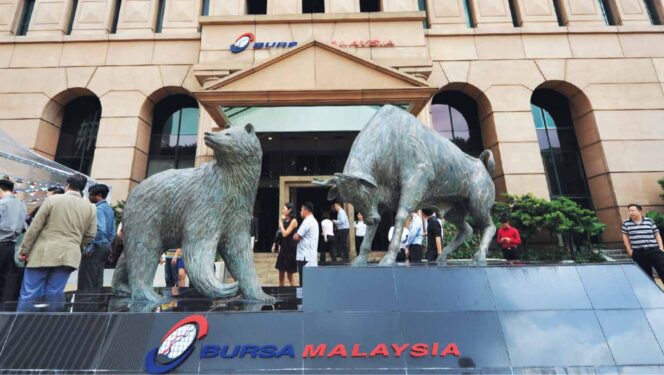
By Ranjit Singh
BURSA Malaysia has lost some RM260 bil in market capitalisation since the Covid-19 outbreak in late January. Share prices of many companies have been battered and this has presented an opportunity for companies to undertake share buybacks.
Some the public listed companies which have been buying back their shares from May 4 till May 6 are Berjaya Corp Bhd, IGB Bhd and Ranhill Holdings Bhd.
As of 5 pm today, Berjaya Corp Bhd’s shares closed flat at 20 sen with 16.7 million shares done. IGB Bhd’s shares closed 2 sen higher at RM2.47 with 240,000 shares done while Ranhill Holdings Bhd’s shares ended the session at 99.5 sen, down 0.5 sen compared with the previous day’s close with 227,000 shares changing hands.
But are share buybacks a good move by the companies? Should investors look at some of these companies?
Phua Lee Kerk, chief strategist at Phillip Mutual Bhd, told FocusM that many foreign institutional shareholders do not view share buybacks positively as awareness on Environment, Social and Governance (ESG) investing is becoming more apparent.
“(This is because) investors, especially foreign institutions, feel that the excess cash could be reinvested in the human resources of the company,” said Phua.
Similar to a dividend, a share buyback is a way to return capital to shareholders. A dividend is effectively a cash bonus amounting to a percentage of a shareholder’s total stock value; however, a share buyback requires the shareholder to surrender shares to the company to receive cash. Those shares are then pulled out of circulation and taken off the market.
In 2019, stock buybacks by US companies totalled nearly US$730 bil. Companies have been steadily increasing the amount of cash they put into buying back their stock over the last decade.
According to recent Harvard Business Review research, more than half of corporate profits in the US go toward share buybacks. Some economists argue that using excess cash to buy up their stock in the open market is the opposite of what companies should be doing, which is reinvesting to facilitate growth (as well as job creation and capacity).
For years, it was thought that share buybacks were an entirely positive thing for shareholders. However, there are some downsides to buybacks as well. One of the most important metrics for judging a company’s financial position is its earnings per share (EPS). EPS divides a company’s total earnings by the number of outstanding shares; a higher number indicates a stronger financial position.
By repurchasing its stock, a company decreases the number of outstanding shares. A stock buyback thus enables a company to increase this metric without actually increasing its earnings or doing anything to support the idea that it is becoming financially stronger.
Share buybacks can also give an artificial increase to share prices. The indication that a company is doing well financially after its share price increases due to a share buyback exercise could be misleading.
Buybacks and dividends can be ways to distribute excess cash and compensate shareholders. Given a choice, most investors will choose a dividend over higher-value stock; many rely on the regular payouts that dividends provide.
Buybacks do benefit all shareholders to the extent that, when stock is repurchased, shareholders get market value, plus a premium from the company.
And if the share price rises, those who sell their shares in the open market will see a tangible benefit. Other shareholders who do not sell their shares now may see the price drop and not realise the benefit when they ultimately sell their shares at some point in the future.
Share buyback programmes have always had their pros and cons for company managements and shareholders alike. But as their frequency has increased in recent years, the actual value of stock buybacks has come into question.
Some analysts feel that companies use them as a disingenuous method to inflate certain financial ratios, such as EPS under the auspices of providing a benefit to shareholders. Share buybacks also enable companies to put upward pressure on share prices by affecting a sudden decrease in their supply.
Investors shouldn’t judge a stock based solely on the company’s buyback programme, though it is worth looking at when you’re considering investing.
A company that repurchases its own shares too aggressively might well be reckless in other areas, while a company that repurchases shares only under the most stringent of circumstances (unreasonably low share price, stock not very closely held) is likely to have its shareholders’ best interests at heart. – May 8, 2020










